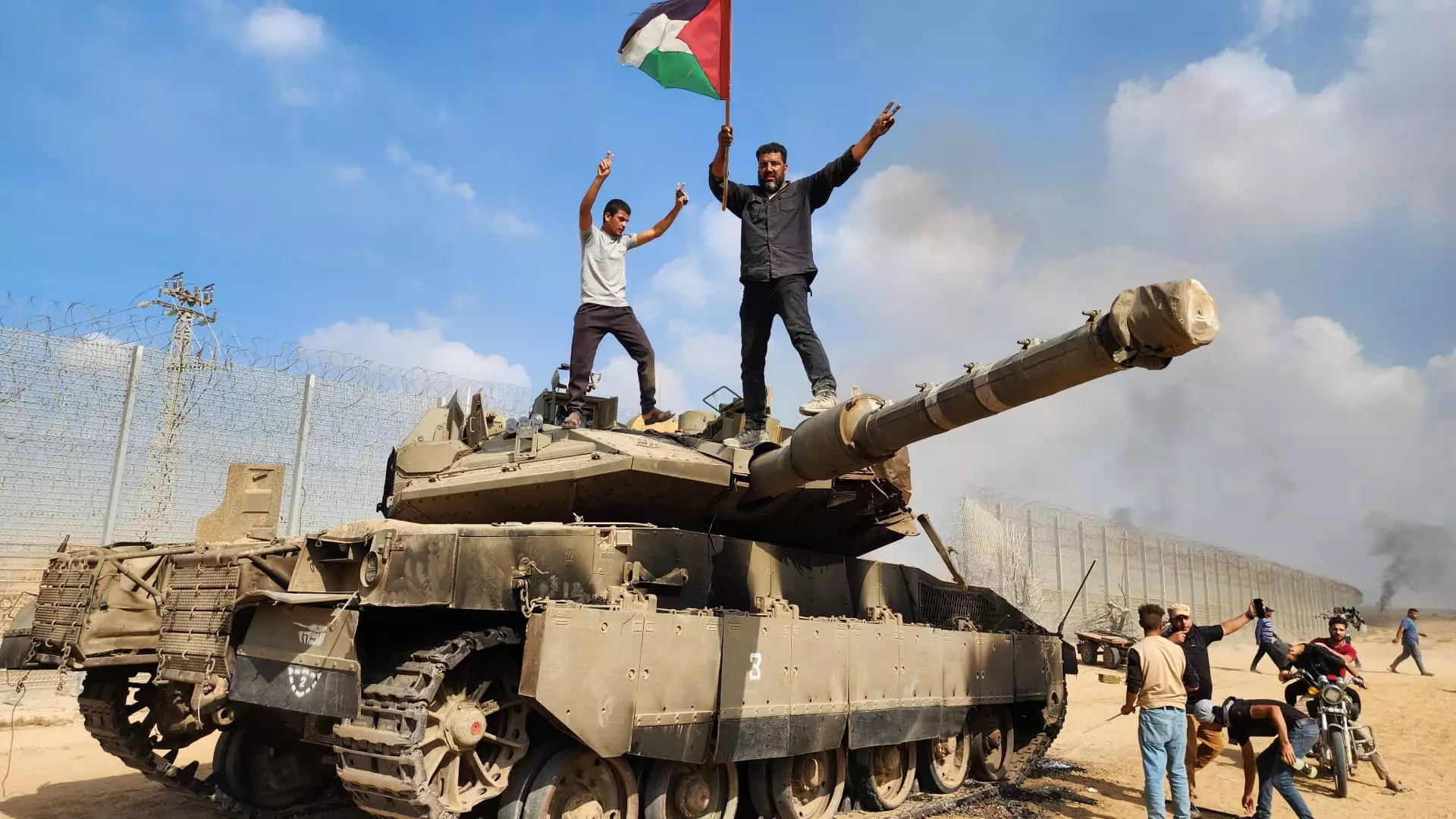The recent conflict between Israeli forces and the Palestinian group Hamas has escalated into one of the deadliest periods of violence in the region in the last 50 years. The conflict began with a surprise attack by Hamas, resulting in approximately 500 fatalities and widespread destruction. This article aims to analyze the implications of this clash, the regional dynamics at play, and the potential consequences for both Israeli and Palestinian aspirations.
The conflict took a dramatic turn when Hamas militants launched a massive rocket barrage into southern Israel, providing cover for a significant infiltration of fighters from Gaza. The attack resulted in the deaths of at least 250 Israelis and the kidnapping of numerous hostages, before the fighters retreated back into Gaza. Israel retaliated with a devastating series of strikes, leading to the deaths of over 250 Gazans, including 20 children, and leaving nearly 1,800 people wounded.
The conflict also witnessed a dangerous regional spillover, with Hezbollah, an armed group backed by Iran, firing rockets from Lebanon into northern Israel. Hezbollah claimed this action was in solidarity with the Palestinians, further intensifying the situation. Israel responded with artillery strikes into Lebanon and a drone attack on a Hezbollah post near the border. Luckily, there were no reports of casualties from these specific incidents.
The large-scale incursion by Hamas into southern Israel has the potential to undermine U.S-backed efforts to establish regional security alignments. These alignments could threaten both Palestinian aspirations for statehood and the ambitions of Iran, who is a key backer of the Hamas group. The escalation also comes at a time of heightened violence between Israel and Palestinian militants in the Israeli-occupied West Bank. Palestinian streets attacks, Israeli raids, and assaults by Jewish settlers on Palestinian villages have become increasingly common, creating a volatile environment.
Hamas leader Ismail Haniyeh stated that the assault in Gaza is a precursor to further actions in the West Bank and Jerusalem, signaling the group’s determination to intensify its operations. Netanyahu’s security cabinet approved measures to dismantle the military and governmental capabilities of Hamas and another militant group, Islamic Jihad, which indicates a protracted campaign by Israel to weaken these organizations. These measures include cutting electricity, fuel supplies, and restricting the entry of goods into Gaza.
The impact of the conflict on innocent civilians cannot be ignored. The limited medical supplies and equipment in Gaza’s hospitals have been stretched to their limits, exacerbating the already dire humanitarian situation. The United States, along with other Western countries, condemned the attack while asserting Israel’s right to self-defense. Meanwhile, demonstrations in support of Hamas erupted across the Middle East, highlighting the deep-rooted divisions in the region.
The conflict has exposed several underlying challenges and obstacles to peace. The prolonged Israeli blockade of Gaza, now spanning 16 years, has been a major source of discontent and suffering for the Palestinian population. Additionally, the lack of progress in the peace process and the hard-right policies of the Netanyahu government have further deteriorated the conditions on the ground. Achieving a lasting peace will require significant efforts from all parties involved, including addressing the deep-rooted grievances and working towards a comprehensive resolution.
The recent escalation of violence between Israeli forces and Hamas has resulted in devastating consequences for both Israelis and Palestinians. The conflict has regional implications, including the involvement of Hezbollah and Iran, further complicating the situation. The international community, led by the United States, must play a crucial role in de-escalating tensions and facilitating a meaningful dialogue between the parties involved to avoid further loss of life and to pave the way for a comprehensive and lasting peace.


Leave a Reply